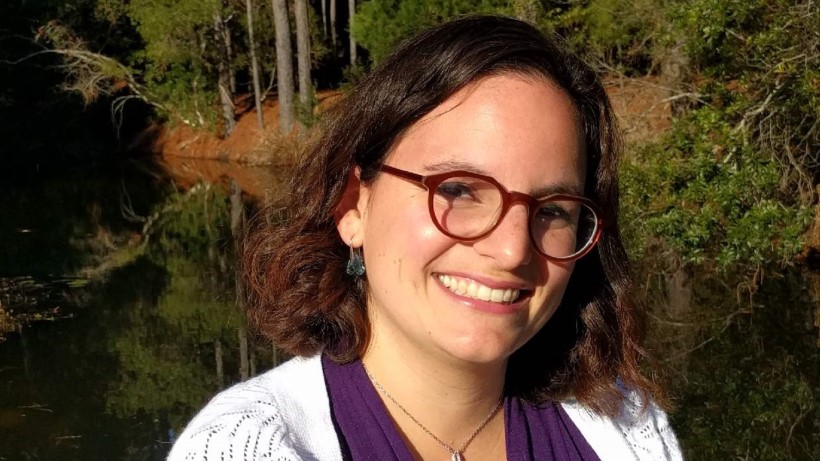Yiddish is more than a language -- it's a globe-spanning cultural touchstone with a thousand-year history. Making sense of it all, and transmitting it to others, is a full-time job.
Specifically, the job belongs to Jessica Kirzane. This fall, she became the Lecturer in Yiddish at the University of Chicago.
Kirzane earned her Ph.D. in Yiddish Studies from Columbia University -- the only place that offers one -- last year, where her dissertation focused on interethnic romance in Jewish American fiction from the early 20th century.
Now, she is teaching seven classes, including Yiddish for beginners and academics, plus Yiddish literature in America as part of the core curriculum in world literature.
While many who study Yiddish are Jewish, she said, others are interested in Germanic languages in general, or in Polish or Eastern European history and culture. By her estimation, fewer than 20 colleges in America have Yiddish programs, including Indiana University, University of Michigan and Harvard University. Those universities who do offer Yiddish often teach it only for beginners.
Kirzane was a Translation Fellow last year and a Pedagogy Fellow earlier this year at Amherst's Yiddish Book Center, the largest library of Yiddish writing in the world, and served as editor and contributor for its Teach Great Jewish Books website. The Center has support from Steven Spielberg to digitize its holdings. Yiddish may now be the most digitized language in the world, she noted, yet only a small amount has been translated.
Kirzane also writes about the Yiddish language. The Editor-in-Chief for In Geveb: A Journal of Yiddish Studies -- which publishes peer-reviewed research, translations, and a blog -- her work has also appeared in several other publications.
Although she did not grow up speaking Yiddish, all of Kirzane's grandparents either spoke it or came from countries where it was common. She did not start learning it herself until she was in college and realized that, to study Jewish literature, she would have to master the language in which much of it was written.
Today, she is fluent. "I did not know as a kid how rich the culture is," she said. "But learning [about] it led to questions addressing a different way of thinking about Jewish life.
"The basic grammar is simple," she noted, "as would be expected of a language with a broad geographic spread." Today, she added, Yiddish is spoken across North America and Europe, but also from Mexico City to Melbourne. Of course, the Internet "helps connect and galvanize speakers, since they are so geographically dispersed."
Yet, as widely as it is spoken, "Yiddish literature is still an uncharted territory" with much of the material still untranslated. "Little is written about it in English, so if you know a little Yiddish, you can become a superstar in the field," she said.
When not in the classroom, Kirzane is also working on expanding access to Yiddish in the public sphere. She recently addressed the audience of the play Indecent , about the censorship of a Yiddish play about a lesbian couple, which just ended its run at the Victory Gardens Theater. The theater will bring Kirzane back to comment for their production of The Dybbuk this spring.
Her interest in Yiddish culture was first sparked by her role in a fifth-grade production of Fiddler on the Roof . Today, she said she feels that the play is a bit schmaltzy. Not that it's not a good introduction to Yiddish culture -- it was for her -- but that there is more to Yiddish literature than being "funny, folksy, and loveable."
"We are not seeing the full range of the culture," she said. Even beyond Holocaust literature, Yiddish can be serious and profound.
And, it's still thriving, she added, noting that new Yiddish poetry, short stories, and journalism are still being written today.
If there is one message she hopes people appreciate, it's this: "Yiddish is diverse and vibrant. It has a lot to contribute."


.jpg?n=8356)

.jpg)



.jpg)



